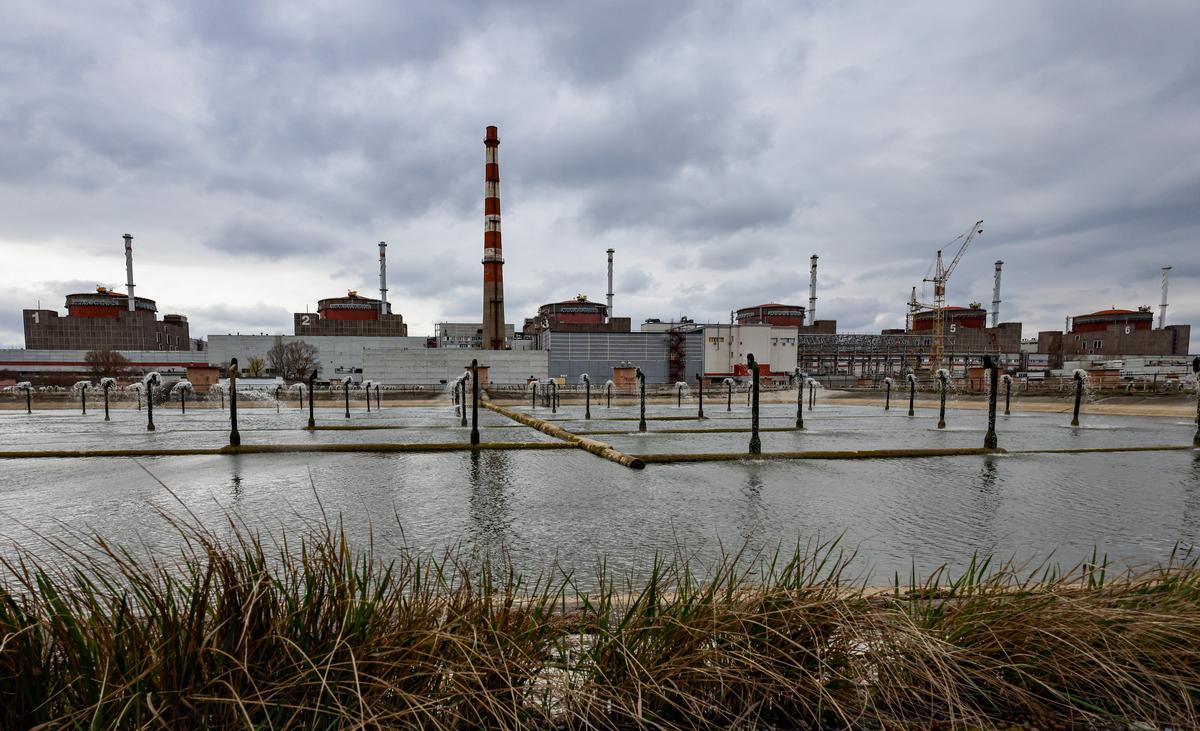
Zaporizhzhia Nuclear Power Plant in Enerhodar, southeastern Ukraine, 29 March 2023. Photo: EPA / SERGEI ILNITSKY
Safety concerns have continued to grow as the Russian-controlled Zaporizhzhia Nuclear Power Plant (NPP) in southeastern Ukraine surpassed a record fifth day operating on back-up power on Saturday, the Associated Press reported, with senior officials in Moscow and Kyiv blaming each other for the situation.
The six-reactor plant, which has not produced electricity since September 2022, has been cut off from mains power for over five days, raising fears that the plant’s cooling systems could fail while the plant operates on backup diesel generators, leading to a reactor meltdown.
On Saturday, The Guardian reported that stress tests previously conducted by European regulators suggested that nuclear plants could operate without external power for 72 hours, but that any additional period was as yet untested.
The disconnection of the Russian-occupied NPP from external power, regional environmental watchdogs warn, could be part of an “extremely dangerous” effort to connect the facility to Russia’s electricity grid and restart its production.
According to Greenpeace Ukraine, Russia has been building a new 201-kilometre power transmission line towards the power plant, and recently finished construction of a new water supply system to the plant’s cooling ponds.
“This is the most serious and dangerous event since the [NPP’s] initial occupation in March 2022. Russia is bringing the plant closer to the brink of disaster,” Jan Vande Putte, a radiation and nuclear safety expert for Greenpeace Ukraine, said on Saturday.
Ukrainian Foreign Affairs Minister Andriy Sybiha has called on the International Atomic Energy Agency (IAEA), the UN’s nuclear watchdog, to increase pressure on Moscow to prevent its “attempt to steal the plant”.
“We demand that the agency adopt a principled stance. The Zaporizhzhia Nuclear Power Plant must be returned to Ukraine, its rightful owner,” Sybiha said on Saturday.
On Thursday, IAEA Director General Rafael Grossi met with Vladimir Putin in Moscow during Russia’s World Atomic Week, with the pair having what Grossi called a “timely and important exchange” on nuclear energy, nuclear safety, and security challenges.
Following the plant’s disconnection on Tuesday, The Guardian reported that the IAEA said it had been told by the plant’s Russian operators that there was enough diesel to power the emergency generators for 20 days without needing fuel resupply.
Grossi is expected to travel to Kyiv on Monday to discuss the situation at the Zaporizhzhia plant with representatives of the Ukrainian government.
